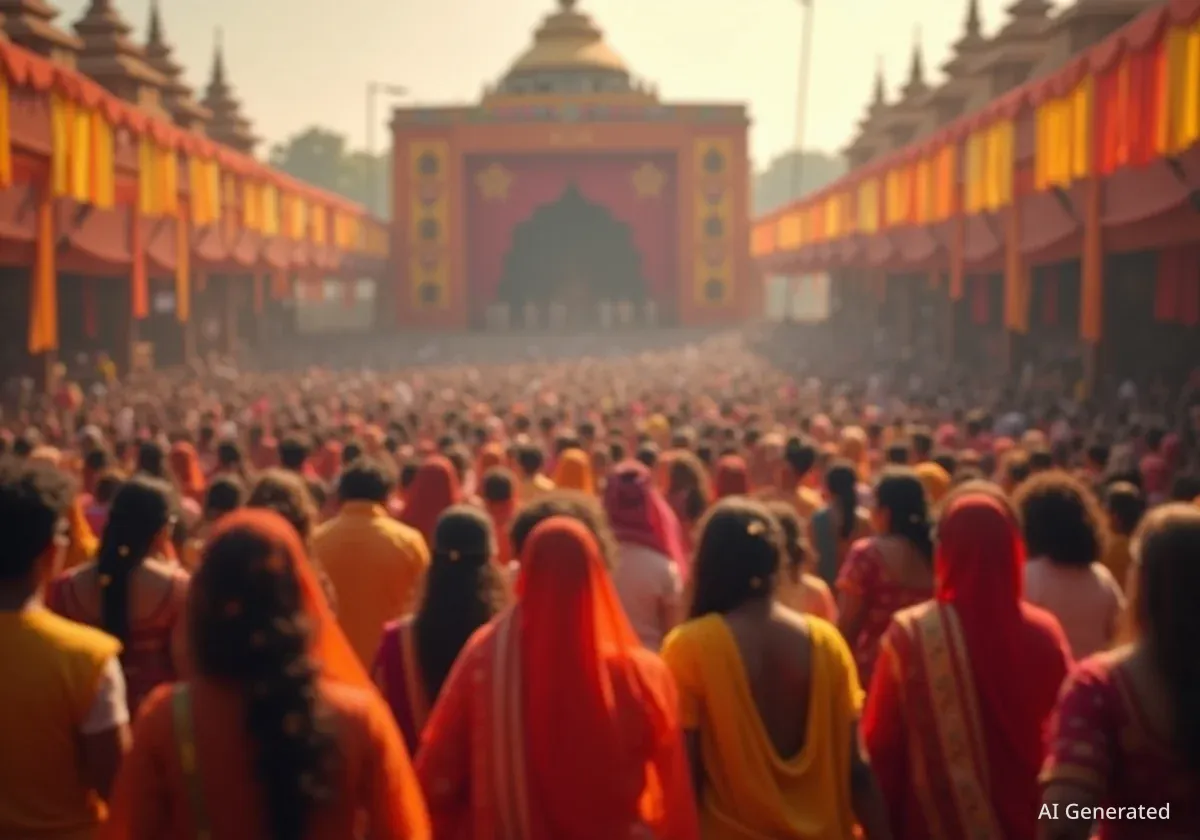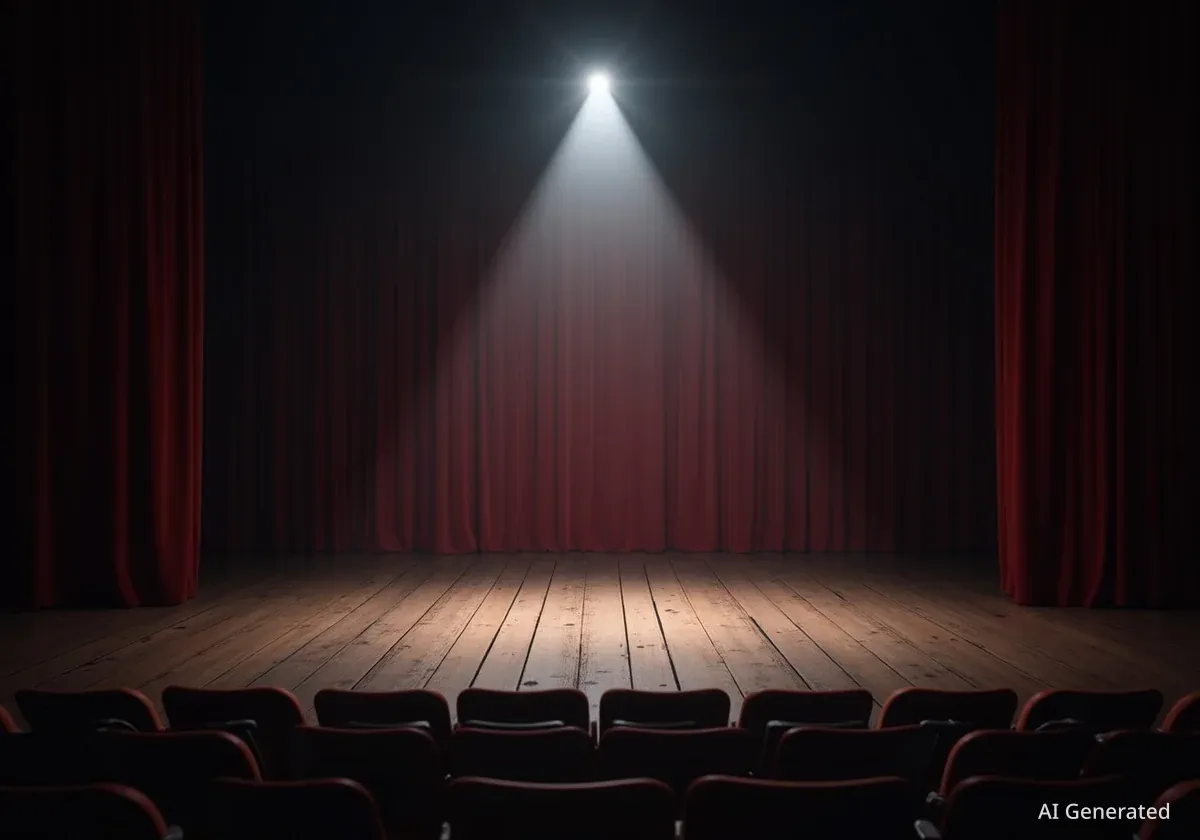The musical production of 'The Book of Mormon' recently concluded its run at the Liverpool Empire Theatre. The show, known for its distinct comedic approach and musical numbers, ran until Saturday, October 18. This review provides an overview of the performance, focusing on its themes, cast, and overall impact on the audience.
Key Takeaways
- 'The Book of Mormon' features a darkly comedic narrative about two young missionaries.
- The production at the Liverpool Empire showcased strong performances from Adam Bailey and Sam Glen.
- The show addresses themes of faith, doubt, and cultural differences through satire.
- Musical numbers like 'Spooky Mormon Hell Dream' and 'Turn It Off' were highlighted for their energy.
- The production's humor is irreverent and may not suit all audiences.
The Premise: Missionary Life in Uganda
The story follows Elder Kevin Price, portrayed by Adam Bailey, and Elder Arnold Cunningham, played by Sam Glen. These two young men are missionaries for the Church of Jesus Christ of Latter-day Saints. They have completed their training and are assigned to a two-year mission. Their goal is to find, recruit, and baptize new members into the Mormon religion.
Elder Price, a confident and exemplary missionary, hopes for an assignment in Orlando. He believes his dedication will lead him there. Elder Cunningham has more modest ambitions, primarily seeking a best friend and his father's approval. Their assignment to Uganda creates a stark contrast with Elder Price's expectations.
Show Origins
The Book of Mormon was created by Trey Parker and Matt Stone, known for 'South Park,' along with songwriter Robert Lopez. It first premiered in 2011.
Character Dynamics and Performances
The dynamic between Adam Bailey as Elder Price and Sam Glen as Elder Cunningham is central to the show. Their contrasting personalities provide much of the comedic tension. Elder Price is initially devastated by the Ugandan assignment but remains confident in his ability to succeed. Elder Cunningham, in contrast, is grateful to have a partner and openly admits to a tendency to lie, which adds to his character's complexity.
During the performance, Sam Glen's portrayal of Elder Cunningham was particularly notable. He infused the character with a childlike innocence and an overactive imagination. This played a significant role in the plot's development later in the show.
"Adam Bailey and Sam Glen truly complement each other on stage. The audience quickly warmed to Cunningham's innocent yet problematic nature," observed one audience member.
Cultural Contrasts and Musical Numbers
The production effectively uses set design to highlight the cultural differences between America and the African village. The initial clinical environment of America quickly transforms into a vibrant, yet challenging, African setting. This visual contrast is further emphasized by the villagers' introduction to the missionaries.
A key musical moment is the song "Hasa Diga Eebowai." Initially presented as a phrase meaning "no worries," its true, more blasphemous meaning is soon revealed. This number underscores the show's irreverent tone and its willingness to challenge conventional sensibilities.
Audience Reception
The show's humor and themes often provoke strong reactions. While some find it offensive due to its religious satire and depictions of Ugandan culture, others appreciate its sharp wit and social commentary. The production aims to push theatrical boundaries.
Supporting Cast and Thematic Depth
The supporting cast also delivers strong performances. Tom Bales, as the scene-stealing Elder McKinley, leads the ensemble through the energetic number "Turn It Off." This segment includes a quick costume change and highlights the ensemble's coordination.
Nyah Nish plays Nabulungi, a villager, and Kirk Patterson portrays Mafala Hatimbi, Nabulungi's father and a community leader. These characters strive to protect their community from the local warlord, General, played by Rodney Earl Clarke. Clarke's portrayal of the General adds a menacing yet comedic element to the narrative.
- Tom Bales as Elder McKinley: Led the ensemble in "Turn It Off."
- Nyah Nish as Nabulungi: Portrayed a key villager.
- Kirk Patterson as Mafala Hatimbi: Played the village leader.
- Rodney Earl Clarke as General: Depicted the local warlord.
Crisis of Faith and Creative Solutions
Faced with the difficulties of their mission, Elder Price experiences a crisis of faith. This leads to the musical number "Spooky Mormon Hell Dream." This elaborate rock number features skeletons, devils, and cameos from historical figures. The song is designed to be visually impactful and musically memorable.
While Elder Price grapples with his doubts, Elder Cunningham takes a different approach. He begins to convert the villagers by improvising and embellishing the original Mormon texts with his own stories. Sam Glen's performance in this section demonstrates his character's creative problem-solving and his "overactive imagination."
The narrative builds to a finale where the villagers present their understanding of the Church of Jesus Christ of Latter-day Saints and 'The Book of Mormon.' This segment is designed to elicit a strong reaction from the audience, combining humor with a sense of discomfort.
Concluding Thoughts on 'The Book of Mormon'
'The Book of Mormon' is a production that uses satire to explore broader questions about faith, doubt, and the nature of religion. While its humor is direct and often controversial, it prompts reflection on these themes. The show is not intended for those who are easily offended, given its explicit language and blasphemous content.
For audiences open to its unique style of comedy and critique, the production offers a memorable theatrical experience. The show's run at the Liverpool Empire provided local audiences with an opportunity to engage with this globally recognized musical.
Tickets for the production started from £15. The show's engagement in Liverpool was part of its wider tour, bringing its distinctive narrative and musical numbers to various cities.





